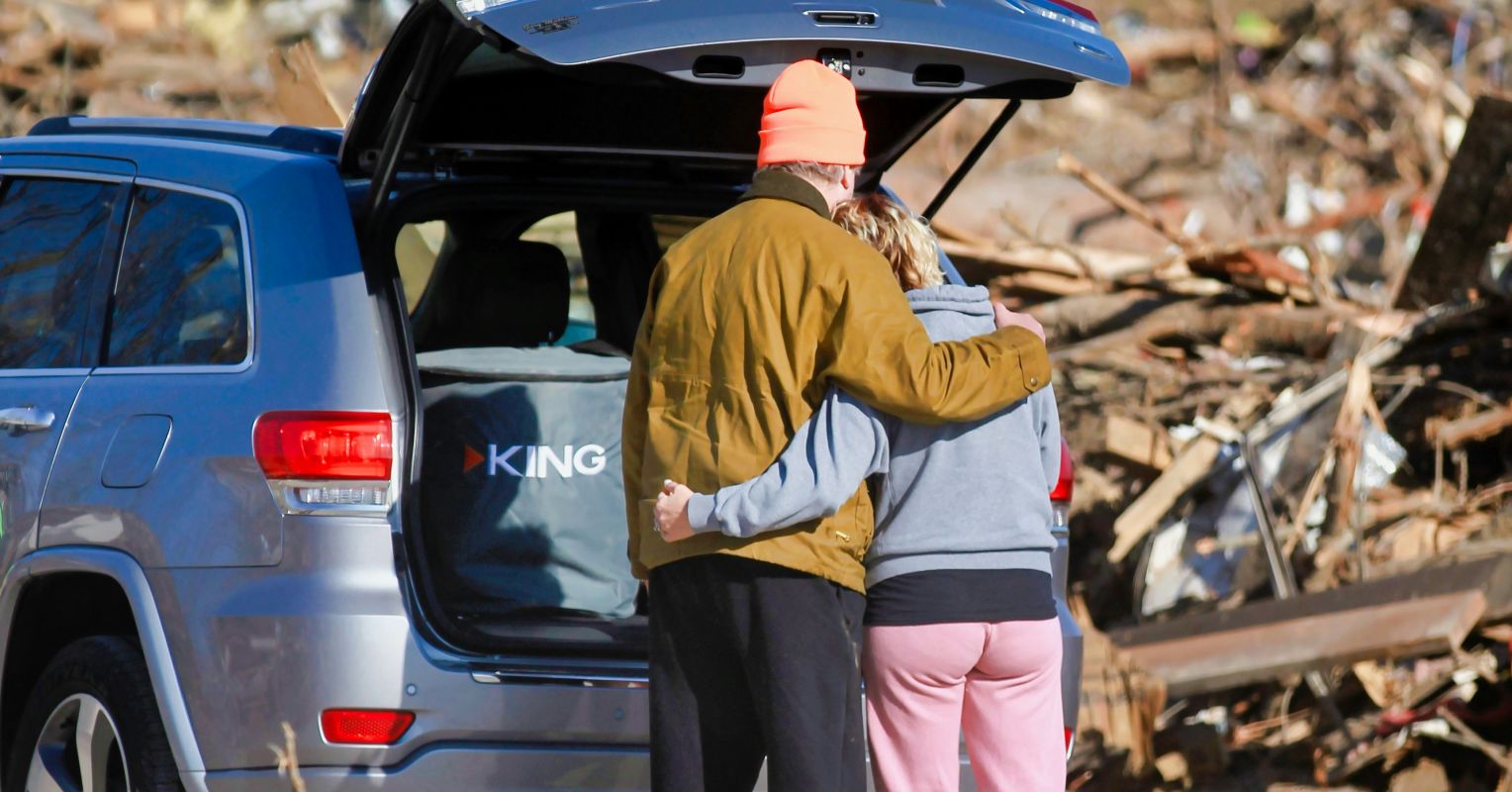Since the catastrophic flooding that took many lives and destroyed much property in the Texas Hill country, hordes of people have come streaming in. Many are workers—first responders, heavy equipment operators, search teams, reporters, and others who have a specific type of help to offer.
Many others have gone to Kerrville because they feel a need to witness it and perhaps find a way to help. We are now very familiar with this phenomenon. The horrific scale of loss and damage brought by hurricanes and floods, and the powerlessness we often feel, elicits a strong desire to find some way of help.
As a professional counselor, I am fortunate to have an avenue to bring help in the form of crisis counseling. I have been providing disruptive event debriefing and psychological first aid since I received my Critical Incident Stress Management training in 2002, right after September 11, 2001.
I spent three days in Kerrville, Texas, last week, meeting with employees at two large stores and a trucking depot. This week, I spoke with reporters at a TV station who have been providing real-time recovery updates, body counts, and stories of those lost and found.
There have already been endless stories of grief, trauma, and tragedy, as well as heroism, sacrifice, and compassion. And there are many more to come. I’ve been privileged to listen to some of them. A full range of human emotions was expressed, but two themes stood out in my conversations: vicarious trauma and survivor’s guilt.
Vicarious Trauma
Vicarious trauma is most often attributed to first responders, military service members, emergency medical personnel, and allied professionals who experience continuous exposure to incidents of trauma and violence.
Relentless, gruesome sights, sounds, and smells of death and destruction can wear down the psyches of even the most stoic, courageous, and best-trained humans in the world. Repeated exposure to these things has a corrosive effect on the nervous system and can cause permanent psychological damage. Bearing witness to the suffering and death of others is its own brand of trauma.
But I’ve observed that even those who are not as close to the trauma can be severely impacted by it. Simply witnessing, listening, watching, reading, and hearing constantly about what is happening on the ground, though removed a degree, can pack almost as much of a punch, especially for highly sensitive people.
A news writer who has remained in the safety of his office told me that he can’t seem to turn away from his news feed, afraid that he’ll miss some important detail or story. He can’t turn off his obsession when he clocks out and goes home.
Many people, whether close to or farther from the wreckage, are dealing with elevated levels of stress hormones and are experiencing an unceasing fight-or-flight reaction. I met a few of these people who had come to realize that if they didn’t step away, if only briefly, they risked unraveling due to their emotional and physical exhaustion.
We talked through the impact of the disaster on their bodies and souls, the hardest things to manage, and most importantly, how to practice rigorous self-care in the face of chaos and grief.
Survivor Guilt
Many people I spoke with told me they were not directly impacted. They told me how fortunate they were to have been spared, and how grieved they were for those who were not. This is normal and healthy. This is human compassion.
Survival guilt is different. It is a form of self-reproach felt by survivors of war or disaster when they think of others who died. It is often one of the most painful aspects of post-traumatic stress disorder. It can show up in less dramatic ways.
A father almost sent his daughter to camp, but backed out because of the cost. He felt guilty before the flood for denying his daughter a great summer. Of course, he is endlessly grateful he didn’t lose his little girl in the flood. But along with the gratitude is guilt for not suffering like so many families surrounding him.
Guilt is another way to suffer. It may not make a lot of sense, but emotions are not facts. They don’t have to be rational to feel very real.
A self-aware reporter who had been on duty from the start of the disaster realized he was at the point of extreme physical and emotional exhaustion. He was very reluctant to ask for a day off, but decided he truly needed it. He stood his ground and was given the time off.
As soon as he heard the yes, he became panicky. He knew how to hold himself together when in his professional role. Now that he had permission, what right did he have to retreat and rest when the recovery teams and the reporters following them were still out there? He felt guilty about stepping away.
I asked those who expressed these feelings whether they might be willing to give themselves grace and let go of the guilt so they could take care of their broken souls before re-engaging. They said yes, they would try, and appreciated my validation of their feelings.
Sometimes, they recognized, helping yourself allows you to continue to show up for others. If you refuse, you might end up sidelined anyway by emotional or physical collapse.
These are some hard lessons learned in places of death and devastation. But, they are lessons that can help survivors ultimately find perspective on their experiences and face the future with resilience.
To find a therapist, visit the Psychology Today Therapy Directory.
